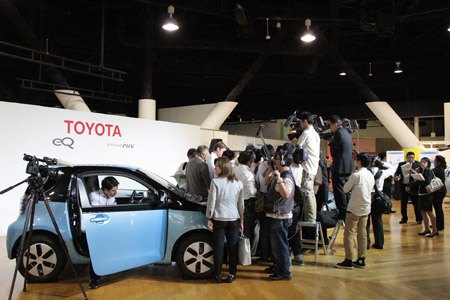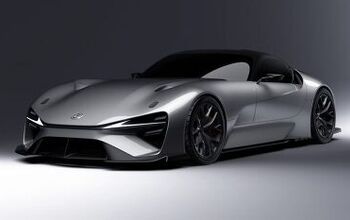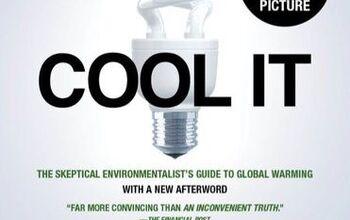Reuters Kills The Electric Car. Again

Consumers lose interest. Even reporters do.!
A few days ago, we wrote that “EVs run out of juice.” When we did that, we referred to collapsing sales in January only. Now Reuters says: “Are electric cars running out of juice again?” Reuters means it in a bigger way. Like forever.
In a long article, written by its best brains, Reuters writes that electric cars are “still is not ready for prime time – and may never be. In the meantime, the attention of automotive executives in Asia, Europe and North America is beginning to swing toward an unusual but promising new alternate power source: hydrogen.”
Both lovers and haters of electric cars should read the article, written by Reuters’ best automotive reporters around the world, Norihiko Shirouzu, Yoko Kubota, Paul Lienert, Deepa Seetharaman, Bernie Woodall, and their Pulitzer-Prize winning boss Paul Ingrassia.
Executive summary:
- Consumers continue to show little interest in electric vehicles.
- EVs continue to be plagued by many of the problems that eventually scuttled electrics in the 1910s and more recently in the 1990s.
- Problems include high cost, short driving range and lack of charging stations.
- The Obama administration backed away from its aggressive goal to put 1 million electric cars on U.S. roads by 2015.
- Nissan’s Carlos Ghosn is backing away from EVs and shifts toward more mainstream gasoline-electric hybrids.
- Tightening of global fuel-efficiency standards from 2020 on is forcing automakers to assess their options.
- Large OEM back hydrogen.
Long-term TTAC readers will find many of these assessments in past TTAC articles.

Bertel Schmitt comes back to journalism after taking a 35 year break in advertising and marketing. He ran and owned advertising agencies in Duesseldorf, Germany, and New York City. Volkswagen A.G. was Bertel's most important corporate account. Schmitt's advertising and marketing career touched many corners of the industry with a special focus on automotive products and services. Since 2004, he lives in Japan and China with his wife <a href="http://www.tomokoandbertel.com"> Tomoko </a>. Bertel Schmitt is a founding board member of the <a href="http://www.offshoresuperseries.com"> Offshore Super Series </a>, an American offshore powerboat racing organization. He is co-owner of the racing team Typhoon.
More by Bertel Schmitt
Latest Car Reviews
Read moreLatest Product Reviews
Read moreRecent Comments
- Dale Had one. The only car I ever bought because of a review in a guitar magazine.Sure was roomy inside for such a small car. Super practical. Not much fun to drive even with a manual.Sent it to college with my stepson where it got sideswiped. Later he traded it in on an F-150.
- Bd2 Hyundai's designs are indeed among the most innovative and their battery technologies should allow class leading fuel consumption. Smartstream hybrids are extremely reliable.
- 28-Cars-Later So now H/K motors will last longer in between scheduled replacements. Wow, actual progress.
- AZFelix I have always wondered if the poor ability of Tesla cars in detecting children was due to their using camera only systems. Optical geometry explains that a child half the height of an adult seems to have the same height as that same adult standing twice as far away from the viewer.
- 28-Cars-Later Actually pretty appealing (apparently I'm doing this now). On a similar note, a friend of mine had a difficult situation with a tenant which led to eviction and apparently the tenant has abandoned a 2007 Jag S-Type with unknown miles in the garage so he called me for an opinion. Before checking I said $2-3 max, low and behold I'm just that good with the 3.0L clocking in at $2,3 on average (oddly the 4.2 V8 version only pulls $2,9ish) and S-Types after MY05 are supposedly decent.


































Comments
Join the conversation
The talk of why 9/11 occurred is quite wrong. The current problems encountered by the West with the mainly Muslim world is commonly called a religous battle. It isn't, it's a clash of cultures and ideals. Simply put, culture is a tool for survival. Currently the Western culture provides a society for the best chance of survival. As we all know the Western culture did have it roots with Christianity, but has evolved and is greatly removed from religion. The Western culture is progressive and allows its "peers" liberties and freedoms to explore anything and everything possible. On the other hand the Muslim culture is more restrictive and has constraints that doesn't allow the same levels freedoms within a society to explore and progress. The average Muslim person is like us, they want what we want and have. What is holding them back are the minor societal differences. One day they will gain the same levels of freedoms we have, but religion and government have to be seperated first, like we had to do in the West. Throughout history cultures have come and gone. Why? Because another culture evolves, and uses the ideals of previous cultures, creates and modify other ideals that it needs. Look at the features of the Western culture that are from previous cultures. Having the ability to build a society doesn't guarantee success either. That society has to be able to expand and change with the least resistance not be restricted, then it will succeed. In the end the Western culture is more flexible, even the Chinese will have to soon realise this, or they will encounter problems.
"Nissan’s Carlos Ghosn is backing away from EVs and shifts toward more mainstream gasoline-electric hybrids." Carlos is no fool, gas or diesel hybrids will be the way forward until hydrogen is feasible in a grand scale, assume that is even possible.